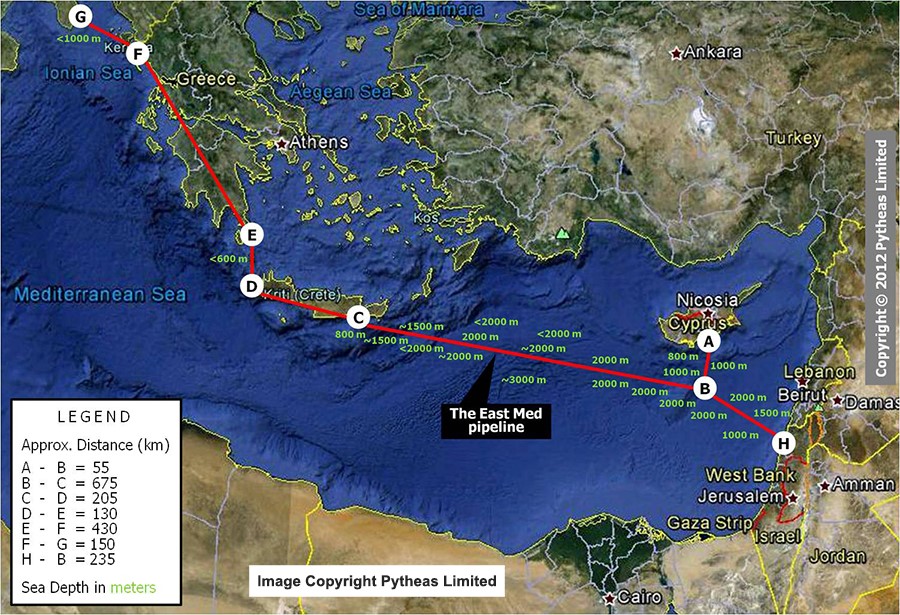Sourced : France24
Italy, Israel, Greece and Cyprus pledged Monday to move ahead with the world’s longest undersea gas pipeline from the eastern Mediterranean to southern Europe, with support from the European Union.
If carried out as planned, the long-discussed $6.2 billion pipeline would take gas from Israel and Cyprus’s recently discovered offshore gas reserves to Europe and could help reduce the continent’s dependence on Russian energy at a time of ongoing tensions.
In a joint news conference in the Israeli commercial capital Tel Aviv, energy ministers from the four nations, as well as the EU’s Commissioner for Climate Action and Energy Miguel Arias Canete, pledged their commitment to the project.
Feasibility studies had been completed, the ministers said, but work on developing it would not begin for several years — with current expectations for it to go online in 2025.
“This is going to be the longest and deepest sub-sea gas pipeline in the world,” said Israeli Energy Minister Yuval Steinitz.
Gas prices have fallen, however, and the project’s financial feasibility is based on expectations they will rise again, Elio Ruggeri, chief executive of IGI Poseidon — one of the companies developing the plan — told AFP.
Both Israel and Cyprus have started to extract gas from their offshore fields in recent years, with far larger fields expected to come online in the future.
Officials from the countries have sought to market the gas to Europe as an alternative to dependence on Russian imports, and Canete admitted it would help limit reliance on the Nord Stream pipeline via Russia.
“The north stream is a pipeline (which) adds nothing to the security of supply,” he said.
“Cyprus and Israel are very reliable suppliers.”
“We highly value gas supply from the region as a vital source of our gas supply that can make a valuable contribution to our strategy to diversify sources, routes and suppliers,” said Canete.
“This is a pipe that unites and will have the full support of all the members of the European Union.”
The four ministers agreed to meet every six months for the coming years.
Image Sourced Pytheas Ltd

